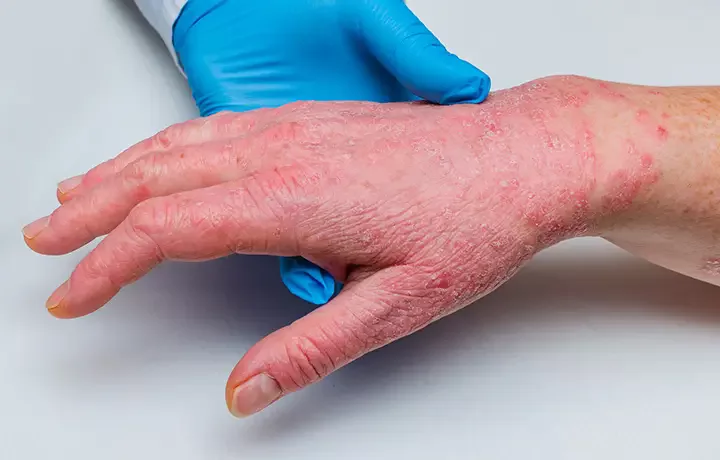If you have been considering getting treatment for psoriasis, you must be curious about all there is to know about the condition and what to expect. The persistent skin disorder known as psoriasis causes thick scales and dry spots as a result of fast skin cell accumulation. Symptoms might change, resulting in itchiness and discomfort. Common sites for psoriasis include the scalp, chest, knees, elbows, palms, and soles. Through dietary modifications, sun exposure, and medication, the goal of treatment is to limit cell proliferation. An infusion center in Manhattan, New York, can tell you more about the infusion treatment.
Signs and symptoms:
About 2% of Americans have psoriasis, which commonly begins around age 28. Men may develop eye problems, although women are much more frequently impacted. The immunological response that caused the aberrant skin cell proliferation and increased T cell production is thought to be the reason. Cold weather, alcohol, infections, skin injuries, smoking, stress, and certain drugs are triggers for symptom aggravation.
Symptoms of psoriasis can be unexpected and uncomfortable, and they might change depending on the kind. Along with the skin, it also has an impact on the scalp, nails, eyes, and joints. Dandruff, unusual nail growth, skin lesions, localized inflammation, and discomfort and swelling in the joints are a few symptoms that might occur.
Diagnosis:
Usually, psoriasis is determined through a physical examination and medical history. Seldom a skin biopsy is deemed to be necessary. To rule out other illnesses, including rheumatoid arthritis and lupus, further laboratory tests like rheumatoid factor and erythrocyte sedimentation rate may be performed.
Treatment:
A multifaceted strategy is required to effectively treat psoriasis, including dietary changes, stress management, topical and oral drugs, moisturizers, salicylic acid, keratolytic, and phototherapy. Topical creams, methotrexate, cyclosporine, biological therapy, analogs of vitamin D, coal tar, calcineurin inhibitors (including tacrolimus and pimecrolimus), anthralin, and medicated shampoos/scalp solutions containing salicylic acid are among the available treatments.
Final thoughts:
The adverse effects of infusion treatment for psoriasis might differ based on the medicine that is being used. Headache, coughing, sore throat, stomach discomfort, skin rash, UTI, flu-like symptoms, upper respiratory infections, and exhaustion are typical side effects. It’s crucial to remember that biologic drugs can make the immune system less effective in fighting infections. To learn more, you should get in touch with a professional at the infusion center in Manhattan, New York.







